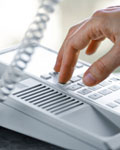Does a Dental Biopsy In My Mouth Mean I Have Oral Cancer?

The short answer is no.
A dental biopsy is a technique of removing some tissue in order to examine it under a microscope. Most biopsies are done by administering some local anesthetic and then removing a segment of tissue with a scalpel. The indication for a biopsy is for any lesion or entity that is not normal.
Many conditions that affect the skin, for example, psoriasis, can also affect the mouth. Without a biopsy, one cannot be certain of the diagnosis. Sometimes there are patches on the tongue or lip that become rather thick and white, or parts of the skin of the mouth (mucous membrane) can break away, leaving raw and painful areas.
In order to determine the exact nature of the condition, a biopsy is necessary. Once the diagnosis is made, the appropriate therapy is administered.
Sometimes a biopsy is required because a small lump appears on the lips, cheeks, or tongue. It can be a nuisance in that it may cause concern or it may be traumatized by inadvertently being chewed on.
Some children (and adults) have a habit of chewing their lips and this can traumatize the small salivary glands in those areas. The glands can swell and form mucoceles. Mucoceles are areas of saliva ballooning up in the tissues after the duct has been partially obstructed. They usually are a painless, blue-domed, raised structure that almost always appears in the lower lip. Often, the only way to eliminate them is to excise them by performing a biopsy.
A recent development is the OralScan CD, in which a pipe-stem-like brush is swept across abnormal tissue (without use of a local anesthetic) and then the brush is drawn over a glass slide and a fixative solution is added. The slide is then examined by an advanced computer system for the presence of abnormal cells. This later technique is not similar to a Pap smear because it does not examine superficial cells, but instead examines the deeper or basal cells in the lesion.
Just as in the rest of the body, any lump, ulcer, sore or odd-appearing tissue should have a biopsy done on it if is still present two weeks after whatever is thought to have caused it is removed. Again, a dental biopsy does not mean you have oral cancer.
by Myer Leonard, DDS, MD

+Jim Du Molin is a leading Internet search expert helping individuals and families connect with the right dentist in their area. Visit his author page.
Wisdom Tooth Extraction or Removal - Oral Surgery
Guidelines To Speed Healing

After oral surgery, it is important to follow all the instructions provided by your oral surgeon or wisdom tooth dentist.
Here are some guidelines to speed your recovery and healing.
The First Step After Oral Surgery: Proper Care for Bleeding
To limit bleeding after oral surgery, your wisdom tooth dentist or oral surgeon may place a gauze pack on the wisdom tooth extraction site.
This should be left in place for 30 to 45 minutes after leaving the office.
Bleeding might continue after the pack is removed.
If it does, follow these instructions:
- Form a thick pad from clean gauze; dampen it and place the pad directly on the wisdom tooth extraction site.
- Apply some pressure by firmly biting on it for about 30 minutes.
- Replace the pad with a clean one if it becomes soaked with blood.
- If heavy bleeding continues, call your wisdom tooth dentist.
- Avoid sucking on the wisdom tooth extraction site.
Protect the Blood Clot
A blood clot should form in the wisdom tooth extraction site; this needs to be protected for proper healing. Healing is a delicate process and requires the restriction of certain activities; otherwise the blood clot can be dislodged.
Dental Care And Things You Must Avoid After Oral Surgery:
- Sucking or blowing motions
- Smoking
- Drinking through a straw for 24 hours
- Rinsing your mouth vigorously
- Mouthwash (until your wisdom tooth dentist approves its use)
- Cleaning teeth next to the extracted site for the rest of the day
- Strenuous exercise for 24 hours
- Hot liquids or alcoholic beverages
Reduce Swelling and Pain of Oral Surgery
Your oral surgeon or wisdom tooth dentist may give you a plastic ice pack to apply to your face on the way home. A cold compress helps reduce swelling. Apply either a cold compress or cold, moist cloth periodically. Switch to moist heat (a warm wash cloth) 24 hours after oral surgery. Check with your oral surgeon or wisdom tooth dentist regarding how often and how long to use a compress.
Your oral surgeon or dentist may prescribe medication to prevent infection and control pain. Carefully follow the instructions. If you experience severe pain, swelling, bleeding, fever, nausea or vomiting, contact your wisdom tooth dentist.
Proper Oral Care after Oral Surgery
Your mouth should be gently rinsed (not vigorously) with warm salt water the day after oral surgery. Add ½ teaspoon salt to one-cup warm water. Be sure to rinse after eating to keep food particles out of the extraction site.
Brush your teeth twice daily with a soft-bristled toothbrush. Brushing your tongue is also advised to eliminate bad breath and an unpleasant taste that often accompanies oral surgery. Floss at least once a day, too.
Follow your dentist or oral surgeon's instructions carefully after dental surgery.
Contact your wisdom tooth dentist or oral surgeon if you have any of the following problems:
- Numbness doesn't subside within a few hours;
- You experience nausea or vomiting; or
- You have severe pain, swelling, bleeding, or fever in the wisdom tooth extraction area.
Oral Surgery Guideline for Consumers
by Brian J. Gray, DDS, MAGD, FICO

+Jim Du Molin is a leading Internet search expert helping individuals and families connect with the right dentist in their area. Visit his author page.








